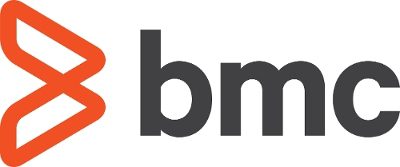As part of its strategy to empower developers and continue to drive DevOps innovation in multi-cloud environments, BMC has introduced Control-M Workbench, a no-cost, self-service, standalone development environment. This new capability accelerates application delivery and improves application quality for organizations driving innovation to market in an ever-increasingly competitive digital business economy.
Control-M Workbench expands the capability of the Control-M Automation API introduced in 2016. Control-M Automation API is a set of programmatic interfaces that allows developers and DevOps engineers to automate application workflows in a self-service manner within the agile application release process. Control-M Workbench can be deployed in minutes, giving developers the autonomy to code, debug, and test workflows the same way that any other coding activity is performed.
Control-M Workbench supports Digital Business Automation, which BMC believes is a new adaptive approach to IT automation that simplifies managing hybrid multi-cloud environments.
DevOps Accelerates with Jobs-as-Code
The movement of testing, monitoring, automation, and policy compliance earlier in the development lifecycle is often referred to as a shift left strategy, and it is a key enabler of accelerating digital service innovation. With a Jobs-as-Code approach, developers can code business application automation directly into the delivery pipeline using their current DevOps tools and shift left enterprise automation for business applications. By giving developers direct access to Control-M, the market-leading workload automation solution, operations receives tested, production-ready applications to advance the business.
When using this approach and leveraging Control-M Workbench, organizations can:
- Complete application delivery up to 20% faster;
- Run jobs with up to 50% less full-time equivalent staff resources;
- Reduce production incidents by up to 25%;
- Reduce the impact of batch processing failure by up to 80%.
Closer collaboration between development and operations
“Our research repeatedly finds that the companies most successful at promoting high-quality collaboration between Dev and Ops are those most likely to see exceptional revenue growth. Still, it is too often the case that new applications and services are signed off and ‘tossed over the wall’ for Operations to deal with and maintain,” said Julie Craig of Enterprise Management Associates (EMA.) “The Jobs-as-Code concept supports the ‘shift left’ trend in terms of work stream specification so that the steps required to execute a given job become part of the code itself.”1
Control-M Workbench fosters skill-sharing and collaboration between development and operations. This new capability gives developers access to build, test, and debug batch automation in a sandbox environment, and seamlessly integrate with their preferred Continuous Integration/Continuous Delivery (CI/CD) tools and methods, including JSON, Git, Jenkins, and others.
BMC customer Carfax has adopted this new DevOps approach with developers across varying applications. “A Jobs-as-Code approach is paramount for anyone doing agile development and DevOps,” said Robert Stinnett, Automation Analyst, IT Operations at Carfax. “We have been using Control-M for years in operations, and now the product gives our developers full ownership and control of their jobs in a coding environment that is familiar to them, so they can define the business processes they want to automate in production.”
“The key to being agile in a multi-cloud environment is for companies to adapt to the challenges posed by diverse infrastructure, disparate data, and accelerated applications to deliver true Digital Business Automation. One of these specific challenges is better collaboration in the Dev to Ops application hand-off process,” said Gur Steif, president, digital business automation at BMC. “With our latest innovation, Control-M Workbench, developers and DevOps engineers can shift left and deliver applications faster and with better quality to drive business growth and a competitive advantage.”
To download Control-M Workbench, click here.
1 Enterprise Management Associates, “Jobs-as-Code Approach Infuses DevOps Focus into Scheduling, Workload Automation”, 2017

